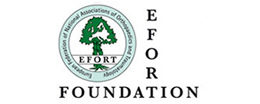The EBOT Exam is a specialist exam in trauma and orthopaedics.
For more than 20 years, it has been run in different European countries with the aim to improve the standard of knowledge and professional competence of surgeons.
A final examination in the Specialty is not universal, and this in turn generates an increase in the variation in terms of assessment from one country to another. However, the EBOT exam tests the generality of orthopaedics and trauma based on the syllabus of the European Curriculum. This will take us closer to the requirements of many of the European orthopaedic societies within the European Union.
To get acquainted with the format of the written exam and to test your level of training, we also invite everyone to participate in the EBOT interim exam, usually organised at the end of March each year.
Certification and Title
After successful completion of both parts (written and oral): Fellow of the European Board of Orthopaedics and Traumatology (FEBOT).
All candidates having successfully completed section I of the exam will be provided with a certificate of Basic Knowledge in Orthopaedics and Traumatology as part of the EBOT Exam.
The written section will be taken separately from the oral examination.
Section 1 – The Written Section
The EBOT Exam Written Section will be completed online and will consist of 100 multiple choice questions (MCQs) in the single correct answer format. It will be held in the different examination centres in Europe or as proctored online exam on Tuesday, 27 May 2025. Applicants need to pass Section 1 to proceed to Section 2.
Candidates can choose to sit the written part in a Pearson Vue test centre (subject to availability) or as fully proctored online exam at home or any other location convenient to them (subject to meeting the minimal technical requirements).
Section 2 – The Oral Examination
The Oral Examination will take place on 27 & 28 September 2025. The location will be published here as soon as it has been decided.
Please note that currently, non-EU citizens NOT working in a European country cannot be accepted. EU applicants are those candidates with citizenship of the European Union (EU), including Norway, Switzerland, United Kingdom & new countries joining the European Union (EU) as well as associate members of the UEMS (Turkey, Croatia and Israel).
Application deadline: 04 March 2025 at 23:59 CET.
Requirements for EU citizens
Certified Specialists:
- Citizenship of the European Union (EU), including Norway, Switzerland, United Kingdom & new countries joining the European Union (EU) as well as associate members of UEMS (Turkey, Croatia and Israel). Please provide copy of passport or ID card.
- Certificate of full qualification as an orthopaedic surgeon from a national authority (EU Orthopaedic society).
- Reference letter from your supervisor or the head of department where you are currently working stating your professional status.
Trainees in their final year of training in a recognised European Training Scheme Programme:
- Two structured references:
-
- from the head of training or department at the hospital
- from the orthopaedic surgeon responsible for your training
Please note that the structured reference forms are available on the EBOT website and have to be uploaded in order to complete your application.
- Copy of passport or ID card.
Please note that trainees will not be able to take Section 2 of the EBOT examination until they have passed their national exam and obtained a certificate of full qualification as an orthopaedic surgeon from their national authority (EU Orthopaedic society).
Requirements for non-EU citizens working in a EU country
It is the unanimous view of the National Associations in Trauma and Orthopaedic surgery within Europe, decided by their representatives in the UEMS/EBOT section of Trauma and Orthopaedics, that surgeons who are not European citizens must be working within the EU to be eligible to sit the EBOT examination. They need to demonstrate that they are certificated specialists in their country of origin and must present a structured reference from the head of department in the institution they are working within Europe.
- Certificate of registration as a specialist orthopaedic surgeon from the national registration authority in the country in which it was obtained.
- Structured reference from your supervisor or the head of department where you are currently working stating your professional status.
Please note that applicants from the UK and Ireland having been trained abroad will need to have worked at Registrar level in the UK or Ireland for a minimum of 3 years before being eligible to sit the exam.
The European Board of Orthopaedics and Traumatology has started an annual assessment for all European Orthopaedic trainees that went on trial in 2011. This event was a great success because EBOT was able for the first time to gather information at European level, that was handed over to both trainees and heads of training, regarding not only the performance of the different residents but also detailed data on how they have been doing in the five different areas assessed at the final EBOT Exam – upper limb, lower limb, spine, children orthopaedics and basic sciences. For the first time, it was possible to get a glimpse on the spectrum of orthopaedic training in Europe at the appropriate time to be able to identify and correct any deficiencies that may exist.
EBOT INTERIM EXAM 2025
EBOT Interim Exam took place from 12 until 14 March 2025. EBOT is currently updating its process and procedures.
The Oral Examination will take place on 27 & 28 September 2025. The location will be published here as soon as it has been decided.
Please note that currently, non-EU citizens NOT working in a European country cannot be accepted. EU applicants are those candidates with citizenship of the European Union (EU), including Norway, Switzerland, United Kingdom & new countries joining the European Union (EU) as well as associate members of the UEMS (Turkey, Croatia and Israel).
Application deadline: 04 March 2025 at 23:59 CET.
Stay up-to-date with a roundup of all EBOT Exam activities and news. Subscribe now to the EBOT Exem Newsletter and receive all our news directly to your inbox. Fill the form below and confirm your subscription from the email you will receive.
![]()
More information & online application:
Please refer to the EBOT Exam Website:
www.ebotexam.org
and EBOT Interim Exam Website:
www.ebotexam.org/interim
Any other enquiries: ebotexam@efort.org




